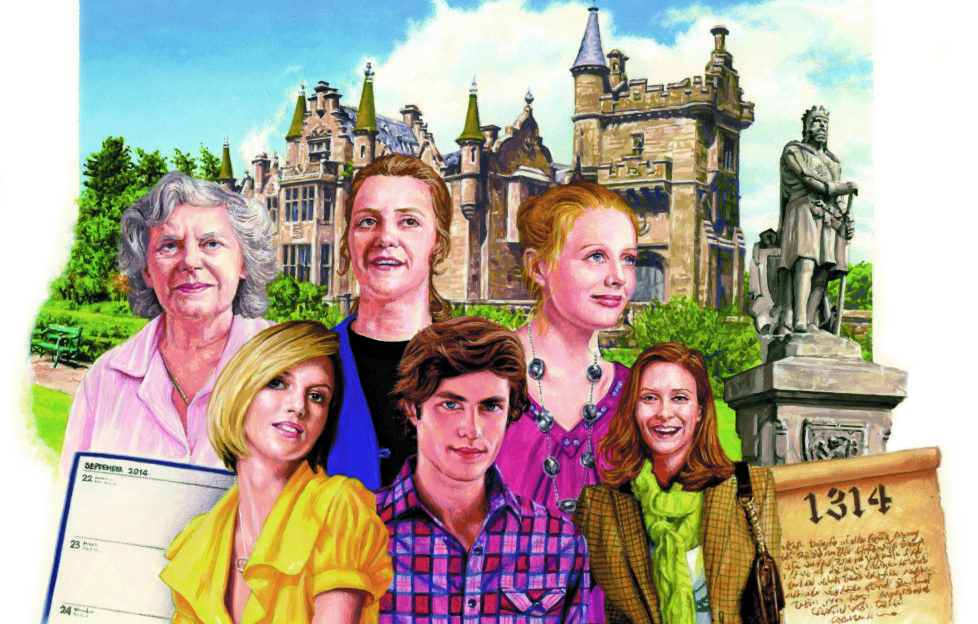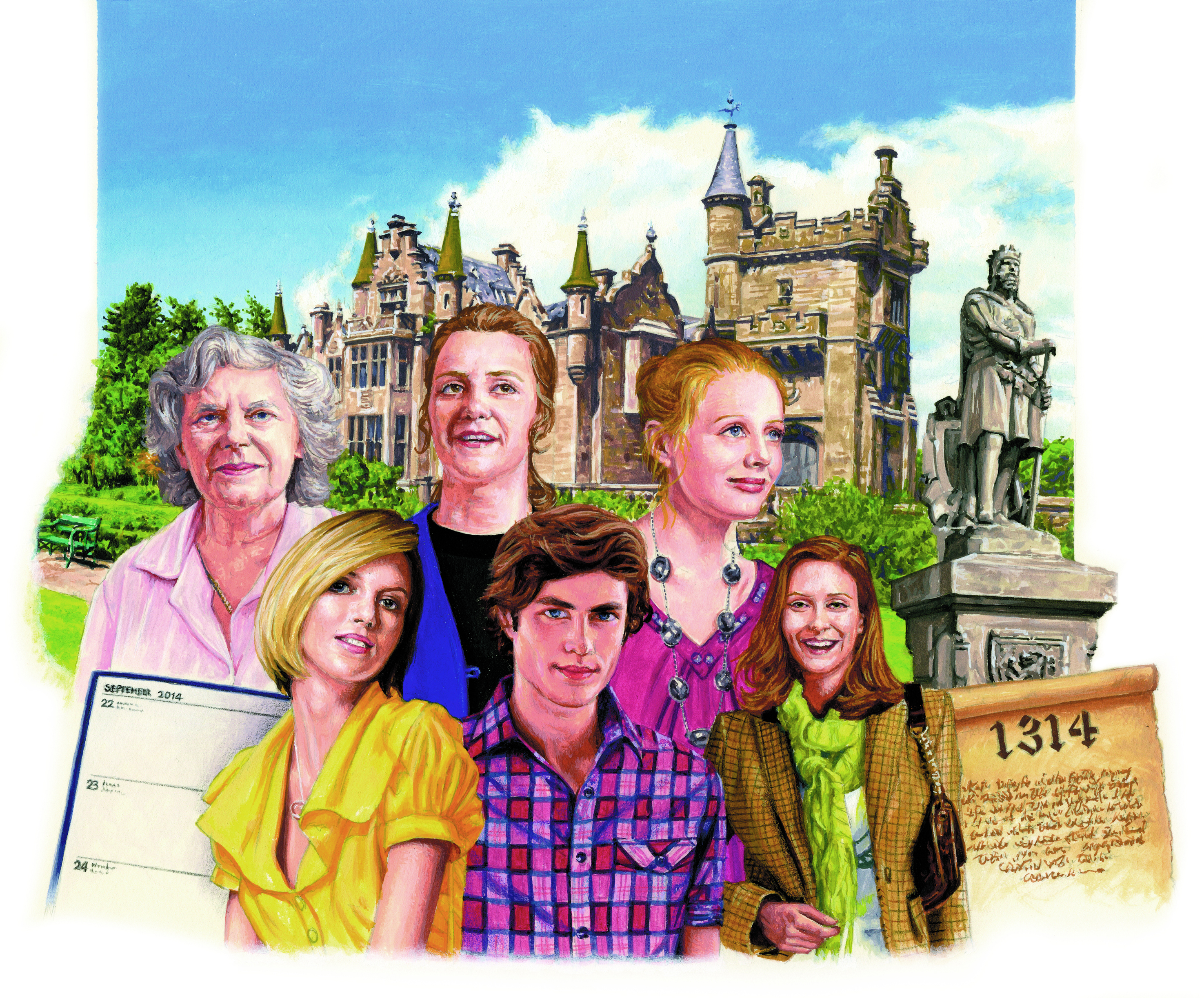Echoes From The Past – Episode 04

Echoes From The Past by Joyce Begg
« Previous Post- 1. Echoes From The Past – Episode 01
- 2. Echoes From The Past – Episode 02
- 3. Echoes From The Past – Episode 03
- 4. Echoes From The Past – Episode 04
- 5. Echoes From The Past – Episode 05
- 6. Echoes From The Past – Episode 06
- 7. Echoes From The Past – Episode 07
Stirling, 1314
Mirin, daughter of Hector, host of the Black Cockerel alehouse, looked round the smoky room and wondered which of her guests to serve first. Her natural instinct was to bring ale to the old couple hunched together in the ingle nook, but the soldiers were getting boisterous and claiming her attention. Then there was Pate Joiner, sour and silent in the corner, but a local tradesman and one of their best customers. How could she please them all?
Like any other true Scot, Mirin would have liked to make the soldiers wait. They were, after all, invaders. At Lent, in the year 1314, they had taken over Stirling Castle, and though there had been few instances of violent behaviour against the local populace compared to what there could have been, they were still foreign. They were English, holding the castle for King Edward. The fact that they frequently spent their money in the town only slightly mollified the people’s resentment. After all, where else would they go, these men, in their off-duty hours?
Mirin nodded to Pate to acknowledge his presence, not that she relished it, and then swept up a jug of ale from the counter and made her way through the tables to the soldiers. Like most military men, they were rough and ready, wearing thick cotton jackets and dark hose. Only one looked smarter than the rest, as though he had availed himself of the washbowl more recently than last week. Mirin had noticed him before. He had dark hair and dark eyes, and she had heard the others call him Thomas. He was more reticent than his companions, just as ready to smile and laugh, but slower to rant. And the soldiers certainly knew how to rant.
“Does the rain never stop?” one of them exclaimed. “I swear my feet have not been dry since October. How did we land in such a desolate place?”
“Come now, Humphrey,” the third man, the one called Guy, said. “Do not pretend it never rains in England.”
“Not like this,” Humphrey replied, a thickset man with hair like the thatch on the alehouse roof. “Nothing like this.”
Mirin braced her shoulders and put on her fixed smile.
“More ale, gentlemen?”
Humphrey turned at her voice and smiled in appreciation.
“Ah. The lovely Mirin. Come now, Mirin, you must admit you live in a wet place. When did the sun last shine?”
Mirin refrained from remarking that she was sure the sun would return as soon as the soldiers left the castle. It was not her place to make inflammatory remarks. Besides, the man was right. Even as she looked out of the tiny unglazed windows, the rain pelted past, turning the streets to mud. Dogs and pigs and hens scattered for cover.
So she said nothing as she filled their tankards, noting only the number to add to the tally. As Humphrey’s hand wandered round her waist, she twisted away with the same fixed smile, a skill she was sure barmaids all over Christendom had had to learn. Escape without offence was her aim. Her father would approve on both counts.
More men came in and took a central table. Among them Mirin spotted Joseph Soutar, a maker of indifferent boots and shoes, and a handy man in a fight. Some say he had once killed a man by a blow to the temple with his awl, but the magistrates could not prove it and he escaped the hangman’s noose. Now he and his companions shook the water from the canvas capes around their shoulders, and shouted to Mirin for food.
“Bread and meat!” they bawled.
Mirin answered in a voice almost as loud as theirs, and just as commanding.
“Certainly, sirs. Sit down and I’ll bring it. Keep your feet under that table, Joseph Soutar. I have no wish to fall over them and break my legs, nor do any of my customers.”
Joseph gave her a murderous glare. At least there was no suggestion of the kind of flirtatiousness Humphrey had shown. Joseph was a brawler, not a womaniser.














